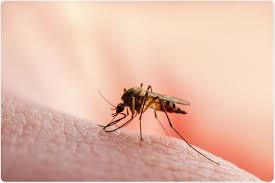
Stagnation in Malaria Progress: Upholding Health Equity Amidst Vulnerability
In recent years, the fight against malaria has hit a roadblock, with progress in reducing the disease grinding to a standstill. Despite ongoing efforts, malaria remains a significant threat to public health, claiming lives and perpetuating a cycle of inequity that disproportionately affects vulnerable populations.
The WHO African Region bears the brunt of the malaria burden, accounting for a staggering 94% of malaria cases and 95% of malaria-related deaths in 2022. Rural communities in Africa, particularly those living in poverty with limited access to education, face the greatest impact. Alarmingly, the current trajectory suggests that critical milestones outlined in the WHO global malaria strategy for 2025 will be missed.
On World Malaria Day 2024, WHO, alongside the RBM Partnership to End Malaria and other stakeholders, shines a spotlight on the barriers to health equity, gender equality, and human rights in malaria responses worldwide. It underscores the urgent need for concrete actions to address these challenges.
Access to quality, timely, and affordable malaria services is a fundamental right, yet remains out of reach for many. Infants and young children bear the brunt of malaria mortality, with approximately 4 out of 5 malaria-related deaths in the African Region occurring in children under 5 years of age. Inequities in access to education and financial resources further compound the risk, with children from the poorest households in sub-Saharan Africa facing a significantly higher likelihood of infection.
Pregnancy increases susceptibility to malaria, posing serious risks to both maternal and fetal health. Gender inequalities and harmful norms exacerbate this risk, placing pregnant women at greater vulnerability to infection and adverse outcomes such as severe anaemia, stillbirths, and low birth weight babies.
Refugees, migrants, internally displaced persons, and Indigenous Peoples are also disproportionately affected by malaria, often enduring adverse conditions where the disease thrives. Climate change and humanitarian emergencies, including natural disasters and conflicts, further exacerbate the risk by displacing populations and disrupting healthcare services.
Despite these challenges, marginalized groups continue to be excluded from essential malaria prevention, detection, and treatment services, hampering efforts to achieve a malaria-free world. Addressing these disparities and ensuring equitable access to malaria interventions is imperative to realizing the vision of a world free from malaria.